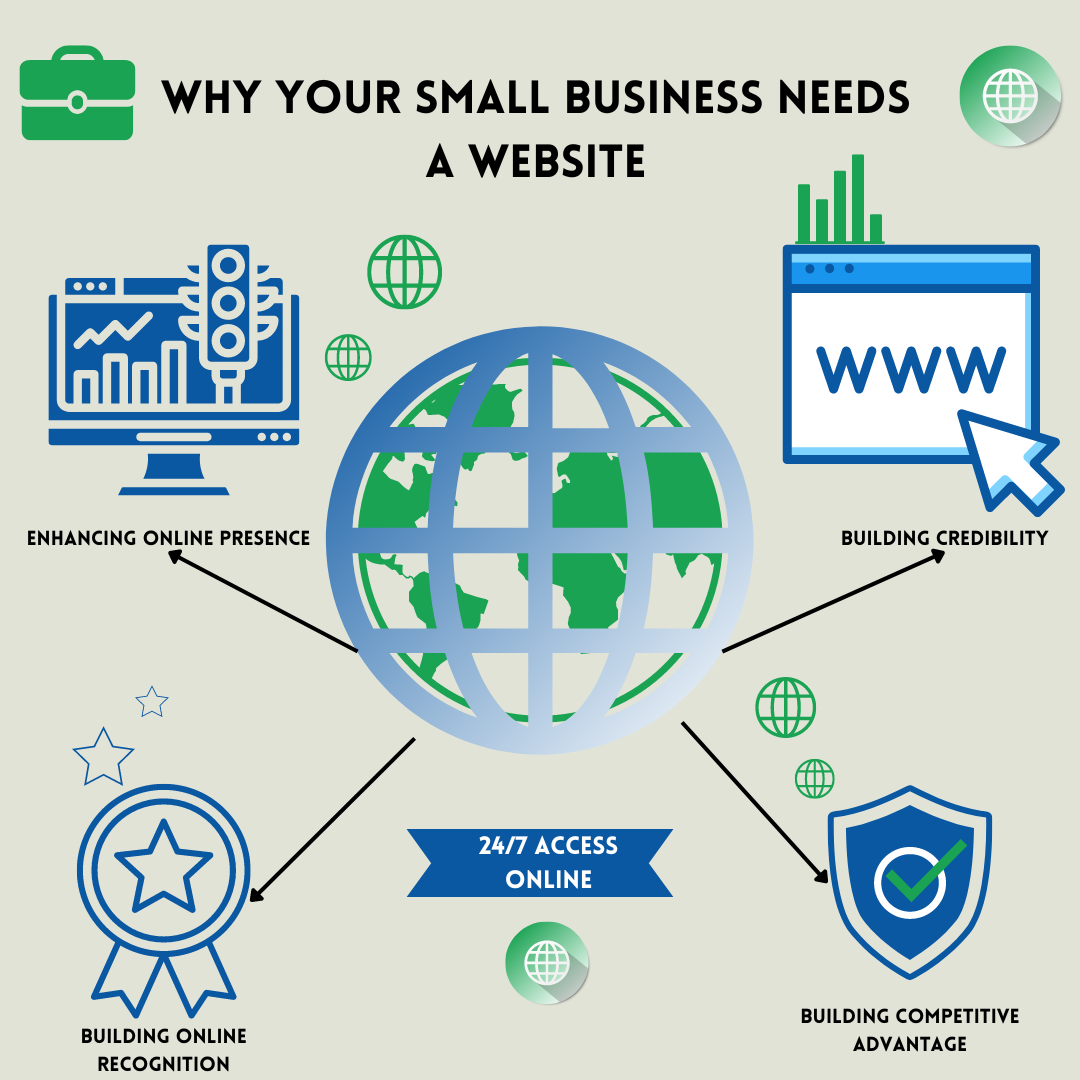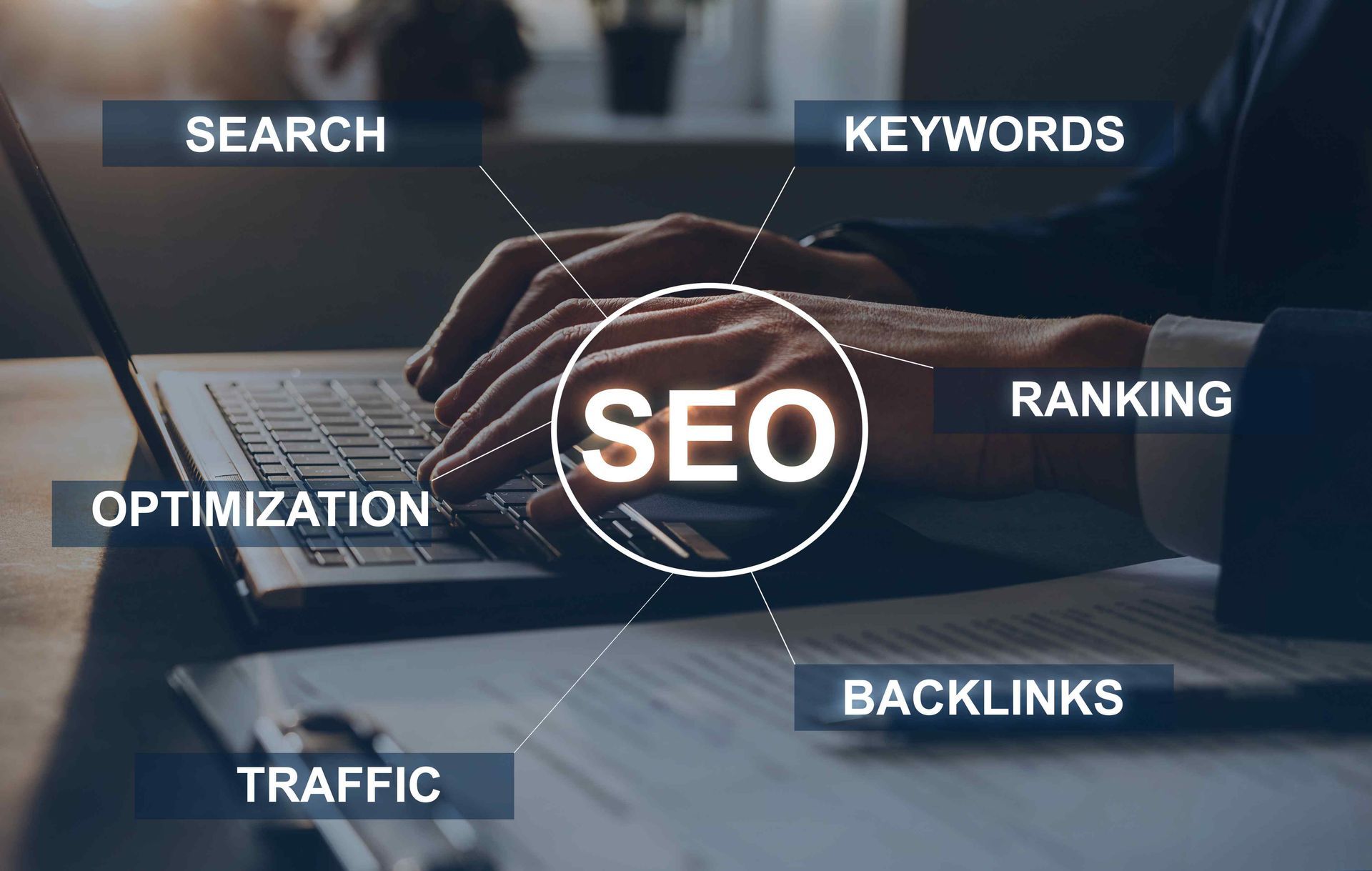Is It Worth Making a Website for a Small Business?
Is investing in a business website worth it? Let's take a look.

As a small business owner in Las Vegas or Henderson, you might ask yourself if creating a website is worth the effort and cost.
The short answer is: absolutely, yes!
A website can be a game-changer for your business, offering many benefits that go beyond social media. Let’s explore why a website is essential and how it can help your business grow.
The Importance of Having a Website for a Small Business
Enhancing Online Presence
In today’s digital age, having an online presence is a must. Where do people go when they need a product or service? They go online. By having a website,
your business is visible and accessible to potential customers 24/7. This is especially important in busy places like Las Vegas and Henderson, Nevada, where competition is tough, and customers expect to find you online. For more on why having a website is crucial, check out
WordPress' guide on why you need a website.
Building Credibility and Trust
A professional website builds credibility and trust with your audience. It shows that you’re serious about your business and willing to invest in your online presence. I’ve seen firsthand how a well-designed website can change perceptions. For example, a local bakery I worked with saw a significant increase in customer trust and foot traffic after launching their site. Customers were more likely to visit and order online because they saw the bakery as more established and reliable.
Competitive Advantage
Having a website gives you a competitive edge over businesses that rely only on social media or word-of-mouth. While social media is great for engagement, it doesn’t replace the comprehensive benefits of a dedicated website. Your website acts as your digital storefront, showcasing your products, services, and unique value proposition. It’s also a great platform for sharing customer testimonials, case studies, and detailed information about your offerings.

The Drawbacks of DIY Website Builders
Hidden Costs and Time Investment
At first glance, DIY website builders seem like an affordable solution. However, many business owners find that hidden costs add up quickly. You’ll need to pay for:
- Domain registration
- premium templates
- plugins
- sometimes even support
- Plus, the time investment is significant.
Learning how to use the platform, troubleshooting issues, and maintaining the site can take time away from running your business.
Technical Difficulties and Limitations
DIY website builders often come with technical challenges and limitations. A friend of mine who owns a small boutique in Henderson tried using a DIY builder but quickly became frustrated with the lack of customization options and technical glitches. In her words, her website, "came out ugly and clunky" using WordPress and Shopify. Eventually, she had to hire a professional (me) to fix the issues, which ended up costing more than if she had gone with
a professional service
from the start.
SEO and Performance Challenges
SEO (Search Engine Optimization) is crucial for getting your website noticed by search engines like Google. Unfortunately, many DIY website builders lack advanced SEO tools,
which can hurt your online visibility. Additionally, DIY sites often suffer from slow loading times and poor mobile optimization, both of which negatively impact user experience and search rankings. I’ve had clients come to me after struggling with these issues, and once we optimized their sites, they saw a substantial increase in traffic and conversions. For more detailed information, you can refer to the
Google SEO Starter Guide and
Moz's SEO Learning Center. If you're just starting out,
Ahrefs' Beginner's Guide to SEO is also a great resource.

Benefits of Using a Professional Web Builder for Small Business
Cost-Effectiveness
Hiring a professional web builder can be more cost-effective in the long run. While the initial investment might be higher than a DIY solution, you’ll save money on ongoing maintenance and troubleshooting. Plus,
a professional site is more likely to attract and convert visitors, providing a better return on investment.
Ease of Use and Time Savings
Professional web builders offer user-friendly interfaces that make it easy to create and manage your site after it's built for you, without needing technical skills. This means you can focus on what you do best—running your business—while leaving the technical aspects to the experts.
Customization and Professional Design
One of the biggest advantages of using a professional web builder is the ability to customize your site to reflect your brand. You’ll have access to a wide range of templates and design options, ensuring that your site looks professional and unique. This level of customization is often not possible with DIY builders. For more insights into creating a responsive design, refer to
W3Schools' guide on responsive web design.
Integrated SEO Tools
Professional web builders come with integrated SEO tools designed to help your site rank better in search results. These tools make it easy to optimize your site for keywords, improve site speed, and ensure mobile-friendliness. For instance, when we helped a local HVAC company in Las Vegas
optimize their site, they quickly climbed the search rankings and saw a noticeable increase in inquiries.

How Much Should a Website Cost for a Small Business?
Factors Influencing Cost
Several factors influence the cost of building and maintaining a website, including:
- domain registration
- hosting
- design
- ongoing maintenance
It’s essential to consider these factors when budgeting for your website project. The Small Business Administration (SBA) website building guide offers a comprehensive overview of these costs.
Comparing Costs: DIY vs. Professional Development
While DIY solutions might seem cheaper initially, the costs can add up over time. In contrast, professional development may have higher upfront costs but offers better value in terms of performance, SEO, and long-term maintenance. For additional insights into marketing strategies, take a look at
HubSpot's marketing guide
and
Entrepreneur's small business guide.
Budgeting for a Website
To budget for your website, start by listing all the potential costs, including domain registration, hosting, design, and maintenance. Consider setting aside a portion of your budget for ongoing SEO and marketing efforts, which are crucial for driving traffic to your site.
Value vs. Cost
Remember, the value of a professional website goes beyond the initial cost. A well-designed, SEO-optimized site can drive traffic, generate leads, and ultimately increase sales. It’s an investment in your business’s future. For a detailed look at the benefits, see
Forbes' article on the benefits of having a business website.

Success Stories and Case Studies
Local Success Stories
Take, for example, a local restaurant we worked with in Henderson. Before having a website, they relied heavily on word-of-mouth and social media. After launching their site,
they saw a
30% increase in reservations within the first three months. The website allowed them to showcase their menu, take online bookings, and share customer reviews, significantly boosting their credibility and visibility.
Case Study: Business Transformation
Another client, a small fitness studio in Las Vegas, struggled to attract new clients. We built them a professional website with integrated SEO tools,
a blog, and an online booking system. Within six months,
their inquiries tripled, and they had to expand their team to handle the influx of new clients. This transformation wouldn’t have been possible without a professional website.
For more detailed information on improving your online presence, check out
Google My Business.

How to Get Started with a Professional Web Builder for Small Business
Choosing the Right Web Builder
Choosing the right web builder is crucial. Look for one that offers customizable templates, integrated SEO tools, and excellent customer support. Website Flo uses WebPro.ai to make our websites. Make sure it’s user-friendly, so you can make updates and changes easily.
For SEO basics, refer to
Search Engine Journal's guide and
Neil Patel's SEO guide.
To maximize your social media efforts, consider using tools like
Buffer's top social media tools
and
Hootsuite's social media guide.
Essential Features to Include
Ensure your website includes essential features such as:
- contact information
- services/products
- an about us section
- customer testimonials
- a blog.
These elements help build credibility, provide valuable information, and improve SEO.
Conclusion
Long story, short...It's totally worth it to invest in a website for your small business! You never know will stumble across your business while Googling. Websites with local SEO are great for connecting to those in your community, growing brand awareness for your business, and finding new customers.
Ready to take your business to the next level?
Contact Website Flo

SERVICES
Contact Info
Business Hours
- Mon - Fri
- -
- Sat - Sun
- -
2022 All Rights Reserved | Website Flo




